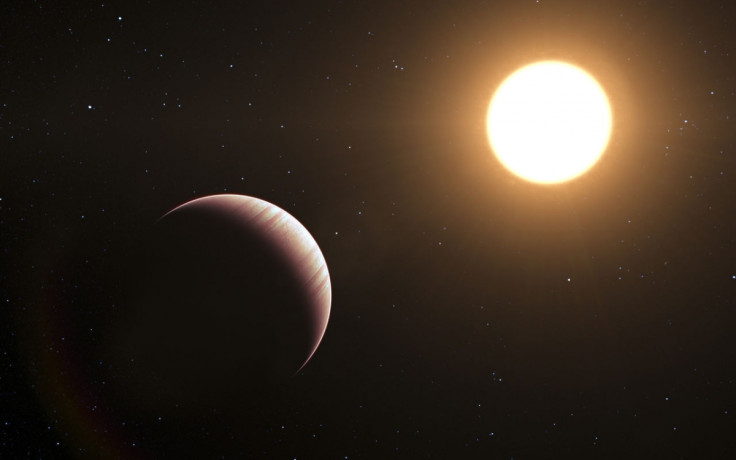Water Detected on Massive Planet tau Boötis b Outside Our Solar System

Water has been discovered on a large planet outside of our solar system that orbits a star called Tau Boötis b.
Astronomers at Penn State University discovered water in the atmosphere of Tau Boötes b by using a new technique that has potential to help researchers learn how many planets with water exist in the universe.
Tau Boötes b is a massive planet – about the size of Jupiter – and is scorching hot. Scientists described their findings in the online version of The Astrophysical Journal Letters.
Chad Bender, co-author of the paper, said "Planets like Tau Boötes b, which are as massive as Jupiter but much hotter, do not exist in our solar system. Our detection of water in the atmosphere of Tau Boötes b is important because it helps us understand how these exotic hot-Jupiter planets form and evolve.
"It also demonstrates the effectiveness of our new technique, which detects the infrared radiation in the atmospheres of these planets."
"These planets are much closer to us than the nearest transiting planets, but largely have been ignored by astronomers because directly measuring their atmospheres with previously existing techniques was difficult or impossible."
Chad Bender, study co-author
Water vapour has previously been discovered on a number of other planets using a technique that only works if the planet is positioned in a certain way.
However, astronomers found water in the atmosphere of Tau Boötes b using a new technique, involving infrared, that allows for much greater examination of the properties of exoplanets.
"We now are applying our effective new infrared technique to several other non-transiting planets orbiting stars near the Sun," Bender said.
"These planets are much closer to us than the nearest transiting planets, but largely have been ignored by astronomers because directly measuring their atmospheres with previously existing techniques was difficult or impossible."
Coupled with the powerful telescopes currently being developed, astronomers believe they will be able to examine the atmospheres of planets much cooler and much farther away – where liquid water is more likely to exist.
© Copyright IBTimes 2025. All rights reserved.






















